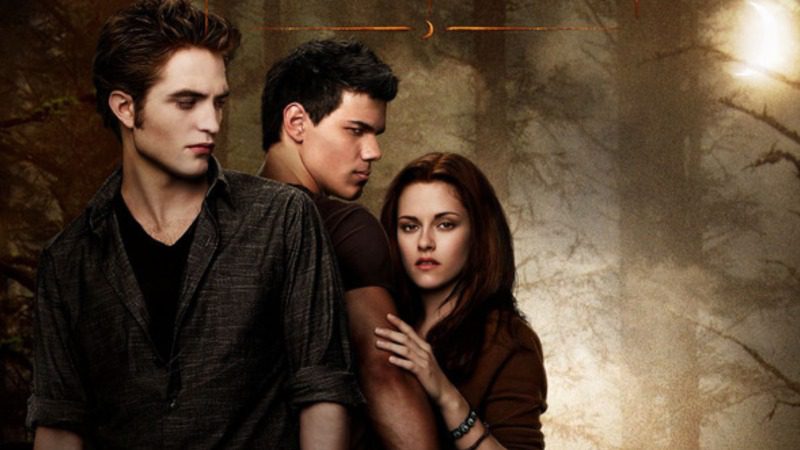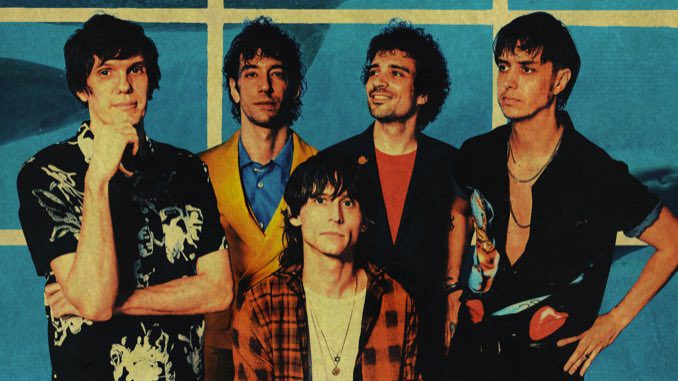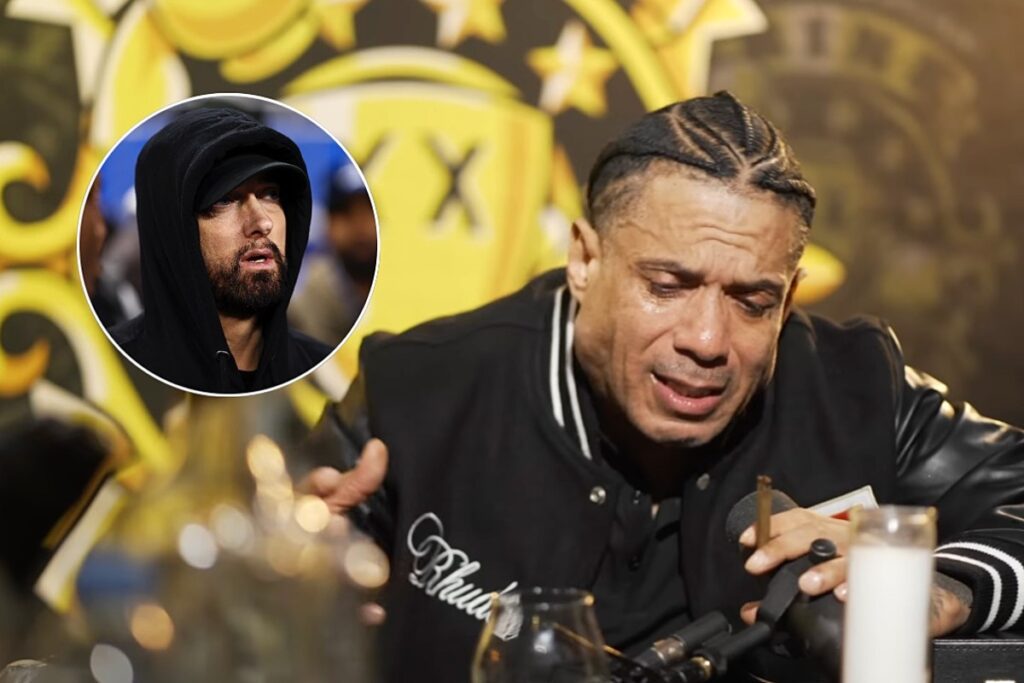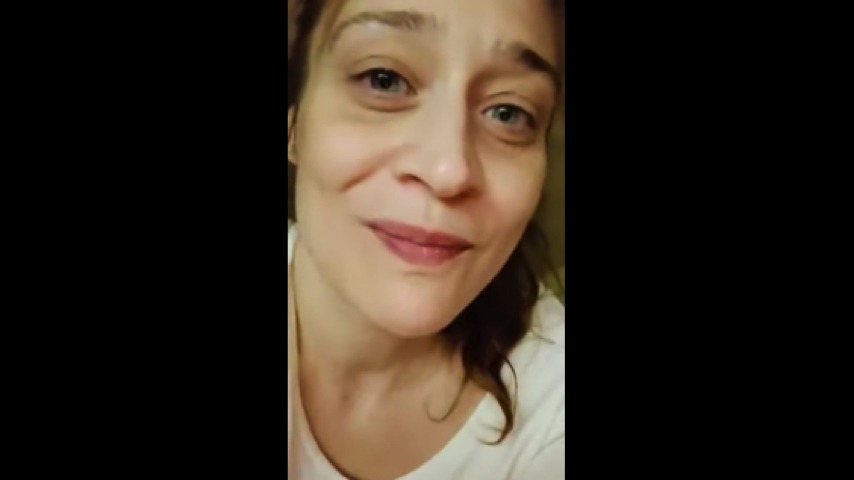Despite being one of the hottest bands of the era, the Killers weren’t the biggest get for the New Moon soundtrack; that honor went to Thom Yorke. After Patsavas got Radiohead to allow the use of their song “15 Step” in the credits for Twilight, Yorke personally requested to write a solo track for the sequel. “Hearing Damage” is enthralling, with zig-zagging synths and heartbeat-like drum beats capturing the anxiety of that face-off in the woods between Victoria, an evil vampire, and the wolf pack. Interestingly, despite being used in a scene that isn’t focused on Bella’s love triangle, you can see how Yorke took inspiration from the story, writing lyrics from the protagonist’s perspective on her romance with Edward: “You can do no wrong / In my eyes, in my eyes,” he sings in the chorus.
It’s easily one of Yorke’s best solo songs—I’d even dare to say among the best in his career overall. When it was finally added to streaming platforms in 2020, it experienced a massive resurgence, with over 50 million Spotify streams and a TikTok trend. If you look at the comment section on the Genius lyrics entry, it’s filled with fans who are confused about how the Twilight franchise served as the vehicle for Yorke to go so hard. Patsavas and Atlantic Records ensured that the soundtracks for each installment gave musicians creative freedom, which in turn inspired the contributors to fit their artistic visions within the fantasy realm of Stephanie Meyer’s books.
Besides Yorke and the Killers, another big get for New Moon was Death Cab for Cutie, who wrote “Meet Me on the Equinox” specifically for the sequel. Frontman Ben Gibbard, then in his early thirties, wasn’t part of the Twilight demographic, but being from Washington state he saw the movies as a positive economic boost for a small town like Forks. “There’s never been anything going on there, unless you were logging or protesting logging—those are the two things to do in Forks. But it’s a really beautiful part of the country, and it’s great to see such a beautiful light shone on it through these films,” he told MTV News.
While Gibbard didn’t read the books to write the track, the band’s former guitarist and producer, Chris Walla, did in order to ensure they were tapping into the true essence of Meyer’s series, while not making it specifically about Bella’s story. “It’s not so specific that it has to be tied to the film,” Walla told The New York Times. “All of Ben’s lyrics have a universality about them. It’s not like the song is about Jacob turning into a werewolf.” “Meet Me on the Equinox” was slated to be one of the biggest songs on the soundtrack, premiering at the MTV VMAs in September of 2009, two months before the movie’s release. The timing couldn’t have been better for Gibbard to tap into the emotions required for a song featured in the franchise: it combines the depressive, desperately lovelorn lyrics from Narrow Stairs, released a year prior, with the mainstream-friendly sound they found on Plans.
Like The O.C. did for obscure indie acts, New Moon also boosted the success of rising stars, playing a role in them becoming mainstream acts. One of those was Lykke Li, who contributed her song “Possibility.” At the time, the Swedish singer had gotten some buzz following the release of her 2008 debut album, Youth Novels, but was a couple of years away from her massive hit “I Follow Rivers.” Li wasn’t a Twilight fan; she even hated vampires, telling Pitchfork that she took the chance because she wanted to “sneak my dark love stories into prime time” and felt that “young girls could really relate” to her music.
She had a hook in mind, but it wasn’t until she saw a rough cut of the movie that she knew exactly what she would write for it. “I had this song growing inside of me that I had to get out, and [the film] was the trigger. Because I really connected with Bella and Edward’s tortured love story,” Li shared with MTV News. What came out was a heartbreaking piano ballad about accepting that happier memories are left in the past, crumbling after being abandoned by a lover. It’s featured in my favorite scene, in which Bella is sitting sullen in her room, feeling defeated after her emails to Edward’s sister Alice bounce back, sulking in solitude as the seasons change. It’s the track that, like for many other teenage girls, introduced me to Li’s music and soundtracked my own adolescent depression. By the time that Li released her breakout album Wounded Rhymes in 2011, she had built a new global fanbase in part thanks to New Moon.
Li wasn’t the only musician yet to break into the mainstream tapped for New Moon. The movie also featured a stunning collaboration between Bon Iver and St. Vincent. When they got involved in the movie, Justin Vernon was just coming off the success of Bon Iver’s debut album, For Emma, Forever Ago, and St. Vincent was on the rise following the release of Marry Me, and Actor had just come out. Vernon and Annie Clark had met at Bonnaroo, bonding over their mutual admiration for each other’s work, which led him to show her a song he was working on called “Roslyn.”
When the Twilight team expressed interest in the track, Vernon brought Clark along to duet with him. It’s a ghostly, pared-down acoustic ballad, with Vernon and Clark’s voices woven tightly together. At the time, Clark wasn’t aware of how massive it would be for either of their careers, but she quickly realized it would be a life-changing opportunity that would introduce her work to the masses. “My main thought was that I really wanted to do something with Justin because he’s so great. Then, once it was announced, I started getting floods of calls and emails from family and extended family, who were thrilled,” Clark said to Pitchfork. “Apparently, every woman in my family, unlike me, has read the entire series, so they’re really just beside themselves about it. I have a sister who’s nine, who called me screaming, and I have a sister who’s 39, and she called me screaming. Only then did I realize the impact of it.”
Patsavas’ inclusion of Grizzly Bear in collaboration with Beach House vocalist Victoria Legrand was also a move that paid off handsomely. Five months before New Moon hit theaters, Grizzly Bear released Veckatimest, which became one of the biggest indie albums of the 2000s, with Jay-Z among their new fans. When the band received the invitation to be part of the soundtrack, they were baffled but figured if New Moon was good enough for Thom Yorke, the frontman of one of the most respected rock bands of all time, then why not? The band wrote the song in just a couple of days and invited Legrand to sing on “Slow Life.” It’s one of the most viscerally emotional songs in the movie, used during a pivotal scene in which Bella risks her life in a desperate attempt to bring Edward back. Legrand’s voice sinks deeper in the mix alongside Bella, while Ed Droste’s vocals come in just as Jacob pulls Bella out of the ocean, saving her life.
Surprisingly, despite being a big Grizzly Bear and Beach House fan during my teen years, I didn’t latch onto “Slow Life,” instead favoring tracks like “Possibility” and Sea Wolf’s jaunty “The Violet Hour.” I only came to love it after revisiting New Moon, and it’s since become one of my favorites. When I found out that Grizzly Bear had invited Victoria Legrand to join them on a couple of dates for their New York City shows, I jumped on the chance to catch them play “Slow Life.” Clearly, I wasn’t the only one excited, as the crowd went wild when Ed Droste announced they were about to perform the track for the first time in over a decade. I found myself getting teary-eyed, taking in “Slow Life” as it was meant to be heard, absorbing the austere beauty of Droste and Legrand’s duet.
It’s not lost on me how absurd it is that a movie franchise about a high schooler choosing between a brooding, ancient vampire and a temperamental werewolf would be the vehicle for outstanding music from many artists I love. Twilight could’ve easily gone for the low-effort, expected route and picked whichever big pop star to write a song about vampire romance. But as Vannucci Jr. said, that’s not Patsavas’ MO. She has always been tapped into what’s about to break, choosing the potential of staying power over mainstream recognition and working with artists who understood the importance of creating music that would speak to teenagers and follow them through their formative years. It’s that type of thoughtful curation that allows new generations to still discover the soundtrack and have it resonate as strongly as it did sixteen years ago.
Tatiana Tenreyro is Paste‘s associate music editor, based in New York City. You can also find her writing at SPIN, NME, PAPER Magazine, The A.V. Club, and other outlets.




